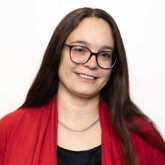PhD position on data-driven healthcare models for pandemic preparation
You will develop operations research methods for healthcare logistics, with a focus on mathematical models and data-driven decision rules for the allocation of patients to hospitals and regions to minimize lost healthy life years during and after a large infectious outbreak.
You will implement your decision rules in decision support systems to facilitate their real-life use during future health crises.
You will work in close collaboration with stakeholders in the medical domain, such as hospitals, as well as regional, and national bodies responsible for patient allocation.
Access to care is a fundamental human right to be maintained even during a health crisis. Pandemics, large outbreaks of infectious diseases such as influenza, or outbreaks of high-consequence infectious diseases such as Ebola result in seriously ill patients straining healthcare delivery from a clinical perspective as well as from the perspective of available hospital resources such as operating rooms, staffed beds at the ward and ICU. During outbreaks, sustaining regular care for non-infected patients is just as essential as care for infected patients. Especially non-urgent care is at risk of being postponed.
You will integrate medical, health-economic, and logistical elements into mathematical models and data-driven decision rules for the allocation of patients to hospitals and regions to minimize lost healthy life years during and after a large infectious outbreak. Such models may, for example, be composed of statistical techniques to forecast the number of pandemic patients, stochastic models to determine the number of hospitalised patients, and optimisation models to allocate patients to hospitals and regions.
You will implement your decision rules in decision support systems to facilitate their real-life use during future health crises. To this end, you will work in close collaboration with hospitals, the ”Regional Consultation Acute Chair Chain” (Regionaal Overleg Acute Zorgketen, ROAZ) at the regional level, and the “National Coordination Center for Patient Reallocation” (Landelijk Coördinatiecentrum Patiënten Spreiding, LCPS) at the national level.
Your project will be embedded in the inter-faculty research team CHOIR (Centre for Healthcare Operations Improvement and Research). CHOIR is a research center within the UT that focuses on Operations Research methods for Healthcare Logistics, such as multi-appointment scheduling, surgery scheduling, and resource allocation in times of scarce healthcare capacity. CHOIR is one of the most active and productive research groups in the field of Operations Research and Management in Healthcare. See https://www.utwente.nl/en/choir/.
Information and application
Are you interested in this position? Please send your application via the 'Apply now' button below before December 31, 2024, and include:
* A cover letter (maximum 2 pages A4) emphasizing your specific interest, qualifications, and motivations to apply for this position.
* A Curriculum Vitae, including a list of all courses attended and grades obtained, and, if applicable, a list of publications and references.
* A copy of your Master's thesis or, if it is not yet available, an outline and summary of your thesis.
* An IELTS-test, Internet TOEFL test (TOEFL-iBT), or a Cambridge CAE-C (CPE). Applicants with a non-Dutch qualification and who have not had secondary and tertiary education in English can only be admitted with an IELTS-test showing a total band score of at least 6.5, internet. TOEFL test (TOEFL-iBT) showing a score of at least 90, or a Cambridge CAE-C (CPE).
First round of interview will be held on January 8, 2025.
For more information regarding this position, you are welcome to contact Richard Boucherie, r.j.boucherie@utwente.nl.
About the department
The position will be in the Applied Mathematics department. The Applied Mathematics department has an active research portfolio in stochastic operations research, algorithmic discrete mathematics, complex networks, statistics, systems theory, computational science, and artificial intelligence with applications in health care, energy systems, traffic, and imaging. See https://www.utwente.nl/en/eemcs/mor/ and https://www.utwente.nl/en/eemcs/sacs/, and https://www.utwente.nl/en/eemcs/mds/ for information.
Our research group, Stochastic Operations Research (SOR), conducts mathematical education and research of internationally high standards in the areas of stochastic processes and mathematics of operations research to contribute to the development of mathematics in a multidisciplinary engineering environment and contribute to a better understanding and functioning of our increasingly complex society. See https://www.utwente.nl/en/eemcs/sor/.
About the organisation
The faculty of Electrical Engineering, Mathematics and Computer Science (EEMCS) uses mathematics, electronics and computer technology to contribute to the development of Information and Communication Technology (ICT). With ICT present in almost every device and product we use nowadays, we embrace our role as contributors to a broad range of societal activities and as pioneers of tomorrow's digital society. As part of a people-first tech university that aims to shape society, individuals and connections, our faculty works together intensively with industrial partners and researchers in the Netherlands and abroad, and conducts extensive research for external commissioning parties and funders. Our research has a high profile both in the Netherlands and internationally. It has been accommodated in three multidisciplinary UT research institutes: Mesa+ Institute, TechMed Centre and Digital Society Institute.



